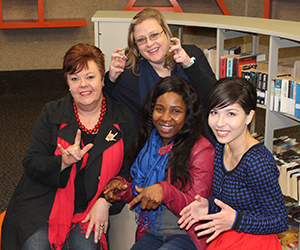Latest News Archive
Please select Category, Year, and then Month to display items
03 March 2021
|
Story Giselle Baillie
|
Photo Supplied
_web.jpg?sfvrsn=987e6620_1) Residence members who led the project, included:
Bohlokwa Rantja, the Residence Prime, and Transformation Committee members Nsuku Mutemela, Ofentse Motlakeng, Phindile Tjale, Madinku Mabala, Mmapopi Motshoso, Karabo Shuping, and Tagane Sekete.
Residence members who led the project, included:
Bohlokwa Rantja, the Residence Prime, and Transformation Committee members Nsuku Mutemela, Ofentse Motlakeng, Phindile Tjale, Madinku Mabala, Mmapopi Motshoso, Karabo Shuping, and Tagane Sekete.
The University of the Free State (UFS) Council approved and adopted Lehakwe House as the new name for the
NJ van der Merwe residence on the Bloemfontein Campus. The approval on 26 November 2020 followed a lengthy process of deliberation, consultation, and public engagement that has taken place since November 2019 and is aligned with the UFS Policy on Naming and Renaming. The name-change process was initiated by the Prime and Transformation Committee of the residence, guided by the
Unit for Institutional Change and Social Justice and supported by a multi-stakeholder committee representative of the residence, the Housing and Residence Affairs Office, the Department of Student Affairs, the Student Representative Council, and alumni.
Lehakwe – a precious gem
Following a lengthy evaluation process of the names submitted through a public voting and recommendation platform in July 2020, ‘Lehakwe’ – a Sesotho word referring to a ‘precious gem’ – emerged as the front runner. As many current and past members of the residence attest, this womxn’s residence has come to occupy a significant space within the hearts and minds of UFS students and the UFS community, given that its spirit has always been closely aligned with the constitutional values of dignity, equality, and freedom and with the human values of ubuntu. In this vein, the new name of ‘Lehakwe’ presents a consolidation of constitutional and university values into the day-to-day thinking, learning, living, and legacy spaces of students, as well as everyone who interacts and engages with the UFS.
Largest group on African continent introduced to Sign Language
2016-07-05
 The introduction of basic Sign Language
The introduction of basic Sign Language
as part of the UFS101 course was a great
success. From left are Susan Lombaard,
Annemarie le Roux, Tshisikhawe Dzivhani
(all from the Department of South African
Sign Language), and Lauren Oosthuizen
(UFS101). Photo: Leonie Bolleurs
As a result of a new initiative at the University of the Free State (UFS), the largest group of students on the African continent took part in a first-year seminar which included Sign Language.
A total of 5400 students on the Bloemfontein Campus and 1000 on Qwaqwa Campus were taught basic Sign Language by Susan Lombaard, Acting Head of the Department of South African Sign Language, and her team members, Tshisikhawe Dzivhani, Annemarie le Roux, and Nicolene de Klerk.
It forms part of the UFS101 module presented to all first-year students. The initiative, begun in the first semester of 2016, will form part of UFS101 in future and was met with an overwhelmingly positive response.
Three segments of course
Sign Language was taught in three segments and positioned as large-class learning experiences in the Callie Human Centre (Bloemfontein Campus) and the Nelson Mandela Hall (Qwaqwa Campus). Students were taught about deaf culture, Sign Language theory, as well as how to sign their names, exchange pleasantries, and have a basic conversation.
A valuable skill to have
“It (the Sign Language experience) was very interesting and helpful,” said one of the students. “It is important to have the ability to communicate with all sorts of people, and to be able to help them in a crisis”. According to another, it sparked an interest in Sign Language. “It is a skill I will continue to use and try to learn more from it,” said a third.
Lombaard – in collaboration with the UFS101 team – will be presenting a paper related to this achievement at the DeafNet Africa Conference in Johannesburg, from 26 to 30 September 2016.